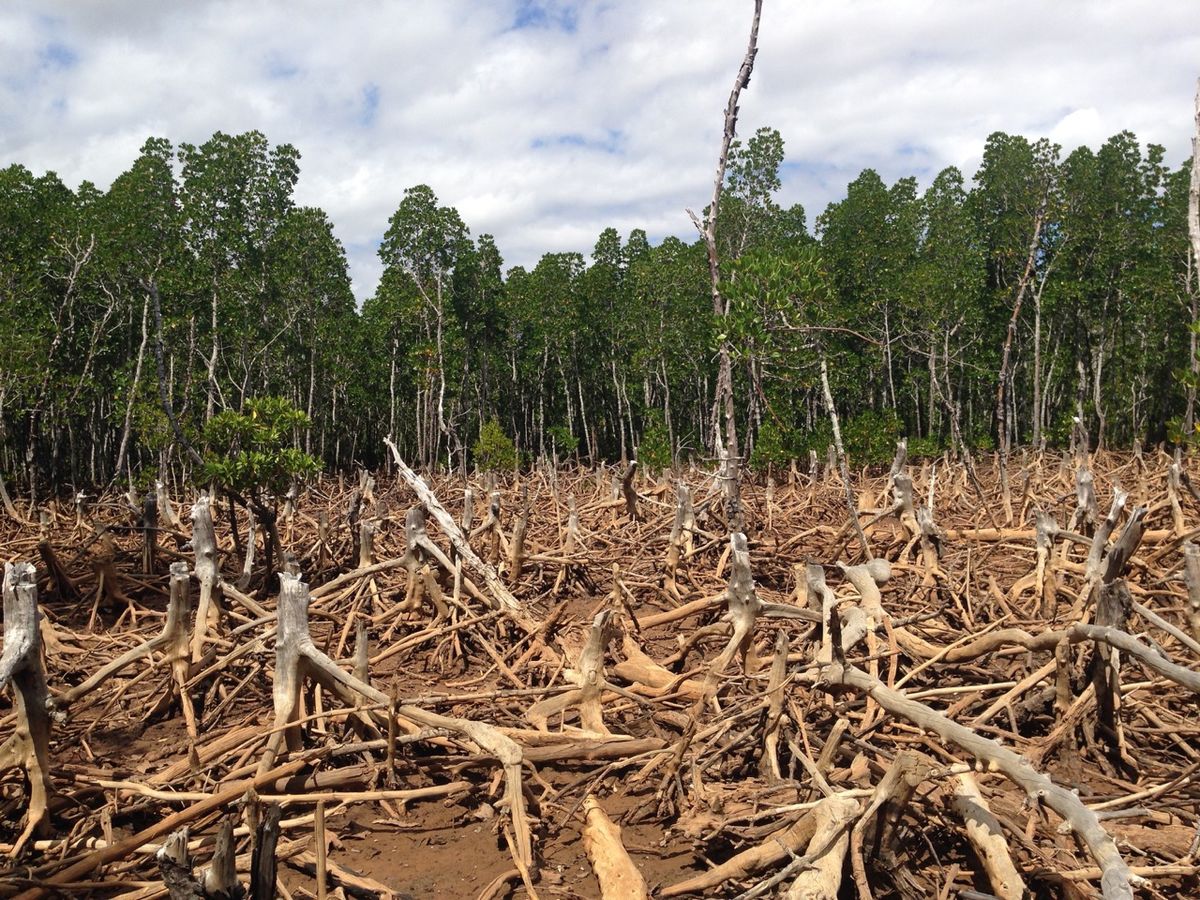Heinz, Jimmy Choo and BlackRock are among hundreds of household names doing “little or nothing” to end deforestation, a major new report has found.
The new Forest 500 report, published today by environmental group Global Canopy, assessed 350 top companies and 150 financial institutions that fund them, finding that a third of companies have no policies in place at all to ensure their products are not driving deforestation.
The world’s three biggest asset managers, BlackRock, Vanguard and State Street, had no commodity-specific policy to address deforestation risks in their portfolios, the report also found.
Of the 150 financial institutions providing over $5.5 trillion in finance to companies in “forest-risk” supply chains, 93 lacked a deforestation policy covering their investments.
The findings come just two months after world leaders pledged to bring an end to deforestation at the COP26 climate summit in Glasgow, committing to “work collectively to halt and reverse forest loss and degradation by 2030”, prompting concern from campaigners about the challenge ahead.
Pressure was now mounting on governments to “bring up the laggards” through implementing stricter legislation, the report said.
“Last year saw unprecedented political action as more than 140 governments recognised the urgent need to protect forests, yet most companies and financial institutions with the greatest ability to halt deforestation are doing little or nothing,” said Niki Mardas, Executive Director at Global Canopy.
“As major consumer governments start to translate these commitments into hard and fast legislation, businesses which have not taken deforestation seriously are woefully unprepared and face real risks.”
Deforestation Risk
Global Canopy used publicly-available data to assess companies and financial institutions on their commitments to tackle tropical deforestation in their supply chains and portfolios, ranking the strength of their commitments for six major forest-risk commodities: palm oil, beef, leather, soy, timber, and pulp and paper.
Around three quarters of global deforestation is driven by agriculture, according to Our World in Data. This is a key driver of climate change and can have a devastating impact on wildlife, ecosystems, and the lives of Indigenous peoples.
Some of the worst offenders named in the report included French dairy companies Groupe Lactalis and Groupe Savencia, whose brands encompass Président and Saint Agur and the Versace, Jimmy Choo and Michael Kors fashion brands, owned by luxury fashion giant Capri Holdings.
Kraft Heinz, which produces Heinz mayonnaise, was found to have a commitment for palm oil but none of the other supply chains listed. While luxury fashion giant Capri Holdings, responsible for brands Versace and Jimmy Choo, had no commodity policies in place.
Financial institutions were assessed separately on their exposure to deforestation risks, through their loans and investments to companies that produce, trade or use “soft” commodities, including soy, beef and palm oil.
While 22 of the 150 had made net zero commitments, including BlackRock, HSBC, and BNP Paribas, this didn’t usually equate to a robust deforestation policy, the report found.
BlackRock, which was found to have no commodity policies in place, scored just 3.2 percent for reporting and implementation, while Vanguard was awarded zero.
‘Slow Progress’
“I’m unsurprised by the disappointing results, as we’ve grown accustomed to very slow progress year on year,” Global Canopy’s Niki Mardas told DeSmog.
“But I am also seeing the rankings in a very new light. Important pledges were made by world leaders on deforestation at COP26 and there is significant legislation coming into force in major consumer markets like the EU and the UK.
“This looks set to force action by even the worst performers, who the Forest 500 identifies clearly. We hope this information will help governments play a more effective role in driving change, both in consumer countries and also in tropical forest regions.”
DeSmog last year revealed the ties of board members leading the world’s top banks to a range of high-carbon sectors, including agribusiness.
Veronica Oakeshott, Head of Forests Policy and Advocacy at human rights organisation Global Witness, said that relying on voluntary policies from companies and financial institutions had “abjectly failed to rein in forest destruction”.
“These policies, where they exist at all, are generally extremely weak or poorly implemented,” she told DeSmog. “In the meantime, big financiers are making huge sums of money off the back of their deals with some of the world’s worst deforesters, as our recent investigation showed.”
“If global leaders are serious about tackling deforestation, as they claimed to be at COP26, governments must introduce strong legislation that makes it illegal for all businesses, including banks and investors, to continue fuelling deforestation. Otherwise, they will continue to profit with impunity as forests are razed, communities are devastated and the climate crisis worsens.”
Président, Kraft Heinz, Versace, Capri Holdings, BlackRock, Vanguard and State Street were all contacted for comment.
Subscribe to our newsletter
Stay up to date with DeSmog news and alerts







